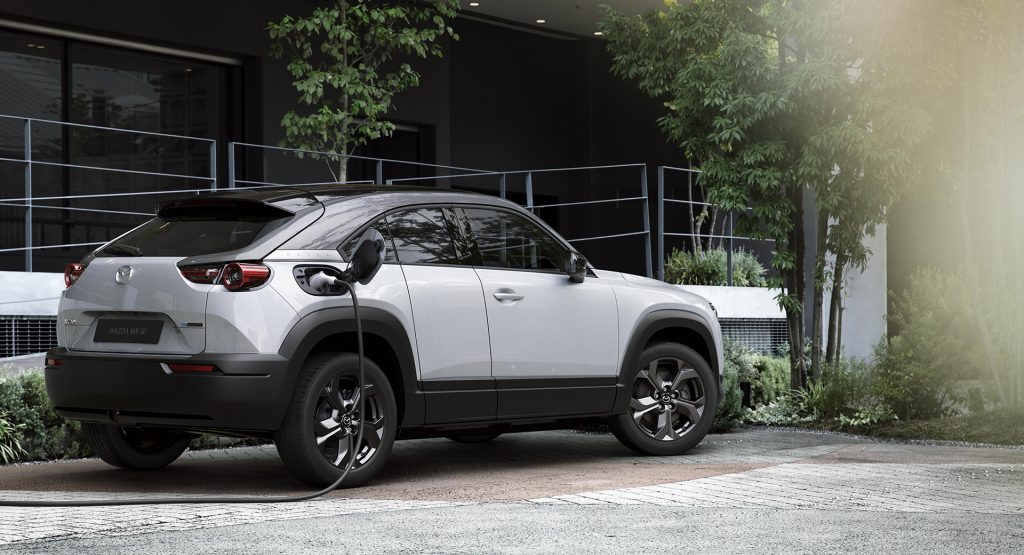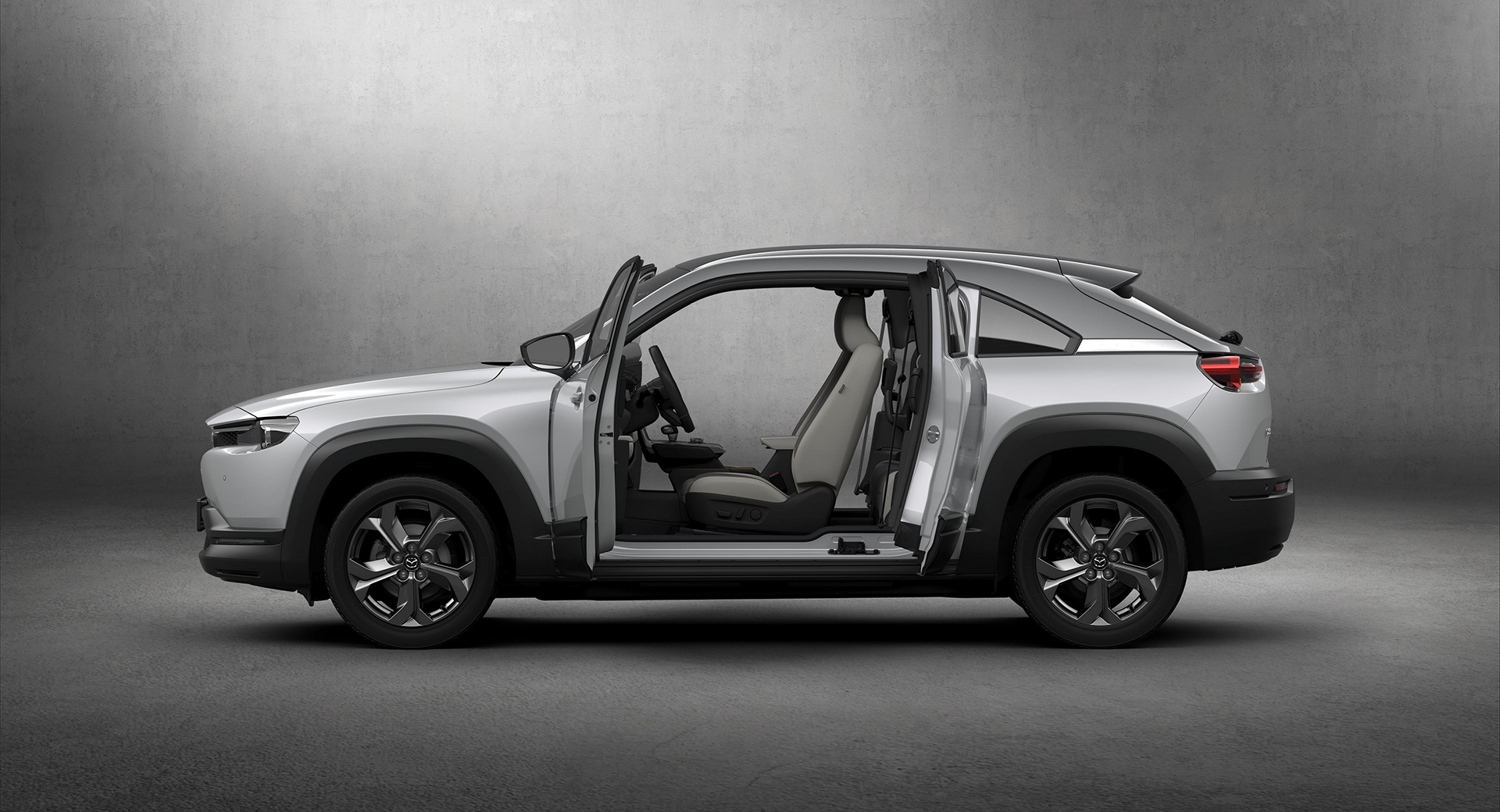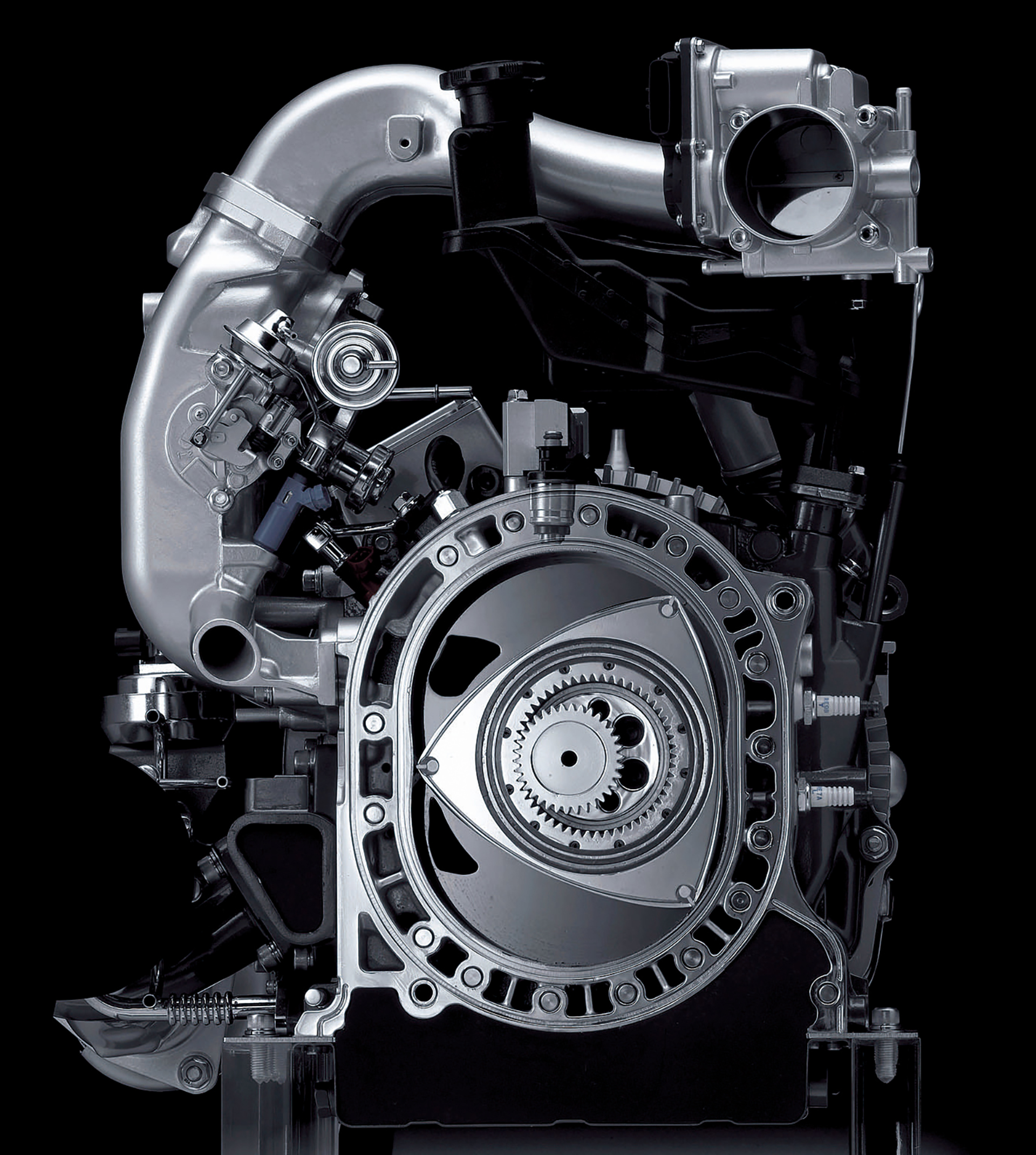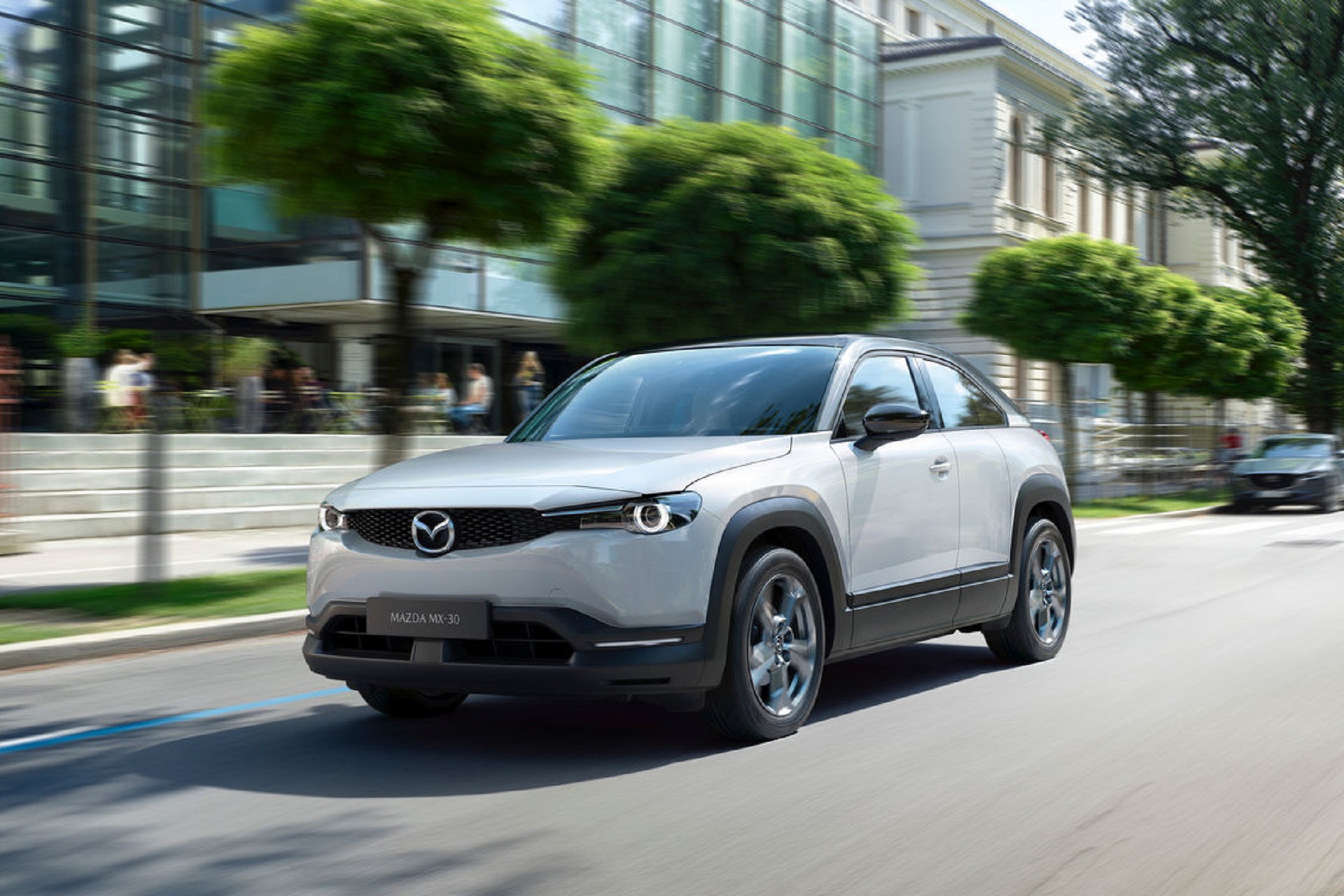Mazda announced their first electric vehicle back in 2019 with the MX-30, but for many people, the 124-mile (200 km) range left much to be desired.
However, there were talks that Mazda would include a gasoline-powered range extender, possibly in the form of a rotary engine. Now the waiting has finally come to an end, as the rotary range extender for the MX-30 has reportedly been confirmed for 2022.
The MX-30 has been suffering on its initial rollout, only meeting about half of Mazda’s sales target of 1,000 units per month, according to the report from Nikkei. Most of the problems seem to stem from the lack of range and the cumbersome “freestyle doors”, but Mazda hopes to make up for the former by employing the range extender.
Watch: Can The Mazda MX-30 Electric Crossover Handle The Moose Test?
The report notes that Mazda hopes to use the rotary engine to double the range from 124 miles (200 km) to 248 miles (400 km). The idea is that not only will they be able to help customers reduce range anxiety, but they also hope to use the rotary engine to differentiate themselves from other EV manufacturers.
Read: All-Electric Mazda MX-30 Is More Fun To Drive Than CX-30, Mazda3
For those not already familiar, a rotary engine uses a rotating triangular rotor mounted to an eccentric shaft to produce its power, rather than the pistons and crankshaft of a traditional engine. This allows it to be lighter and much more compact, as well as have less vibration, than a piston engine of the same power, making it ideal for use as a range extender.
Watch More: Euro NCAP Crash-Tests The Mazda MX-30 And Honda Jazz
The rotary engine was used in some of Mazda’s most storied vehicles, but it was abandoned by the company after the discontinuation of the RX-8 back in 2012, largely due to reliability concerns. While rotary engines made excellent power for their size (the 1.3-liter in the RX-8 made 232 hp, or 178 hp per liter), they were prone to apex seal failure, necessitating an engine rebuild more often than most owners would like. In addition, they were known to burn oil and have sub-par fuel economy.
Hopefully Mazda will be able to sort out most of the issues with the rotary, and we will finally see it make a return, even if it is just as a range extender.






